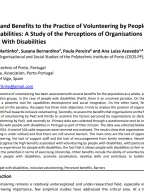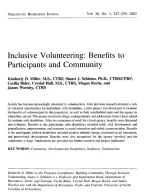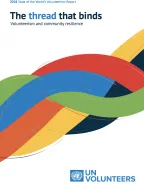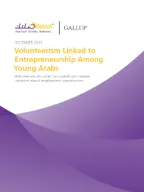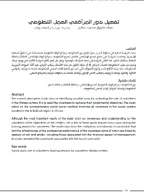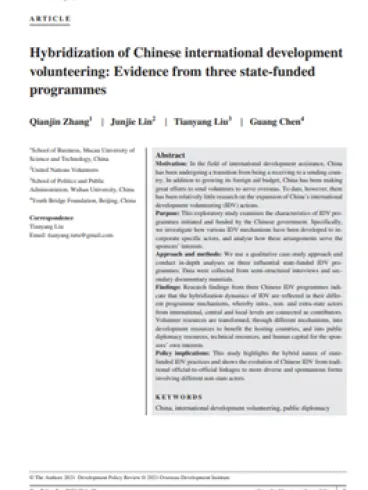
Technical paper
Hybridization of Chinese international development volunteering: Evidence from three state-funded programmes
Enabling Environment for Volunteering
Youth and Volunteering
Download
Fast read
This exploratory study examines the characteristics of international development volunteering (IDV) programmes initiated and funded by the Chinese government. It investigate how various IDV mechanisms have been developed to incorporate specific actors, and analyzes how these arrangements serve the sponsors’ interests.
Summary
- A qualitative case-study approach was used and in-depth analyses was conducted on three influential state-funded IDV programmes. Data were collected from semi-structured interviews and secondary documentary materials.
- Research findings from three Chinese IDV programmes indicate that the hybridization dynamics of IDV are reflected in their different programme mechanisms, whereby intra-, non- and extra-state actors from international, central and local levels are connected as contributors. Volunteer resources are transformed, through different mechanisms, into development resources to benefit the hosting countries, and into public diplomacy resources, technical resources, and human capital for the sponsors’ own interests.
- This study highlights the hybrid nature of state-funded IDV practices and shows the evolution of Chinese IDV from traditional official-to-official linkages to more diverse and spontaneous forms involving different non-state actors.













